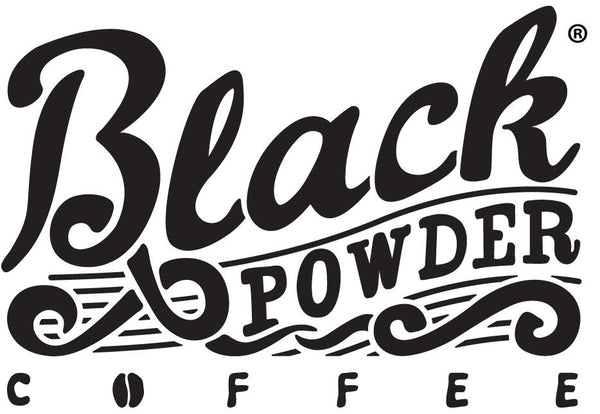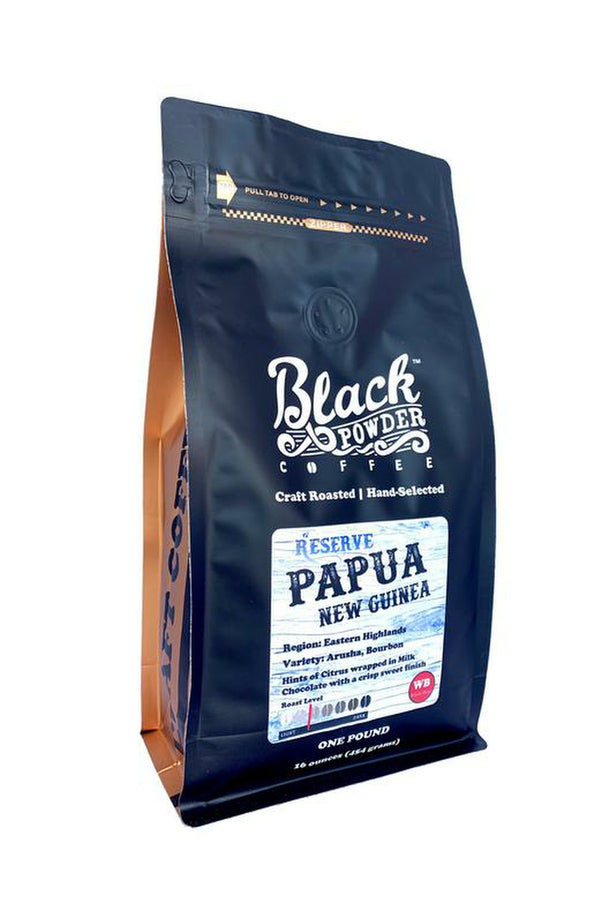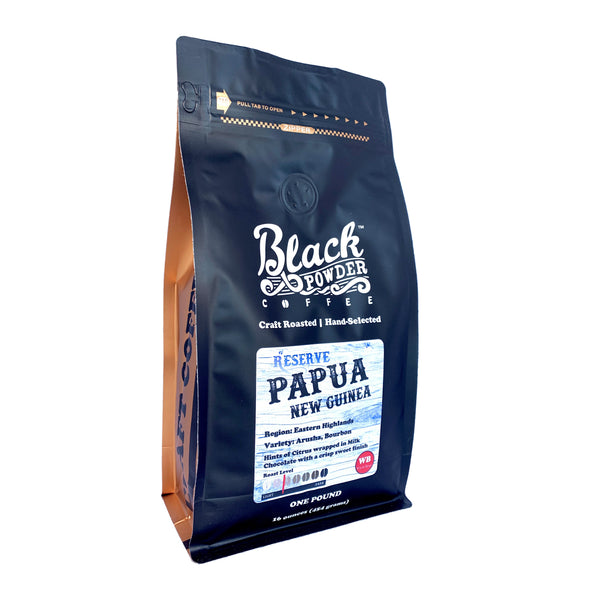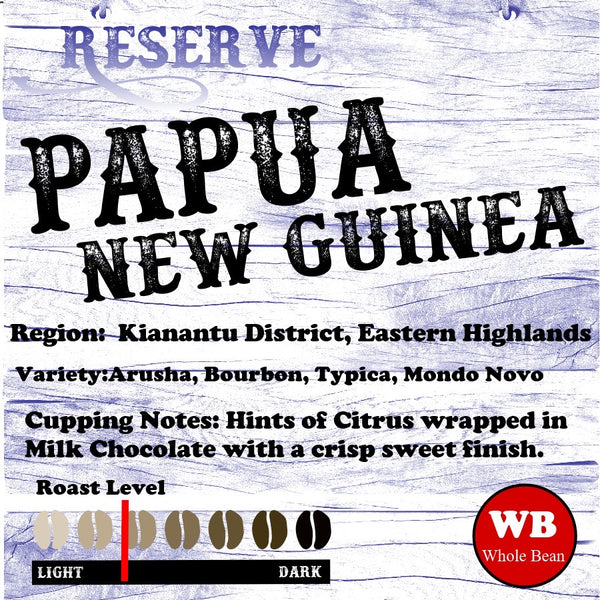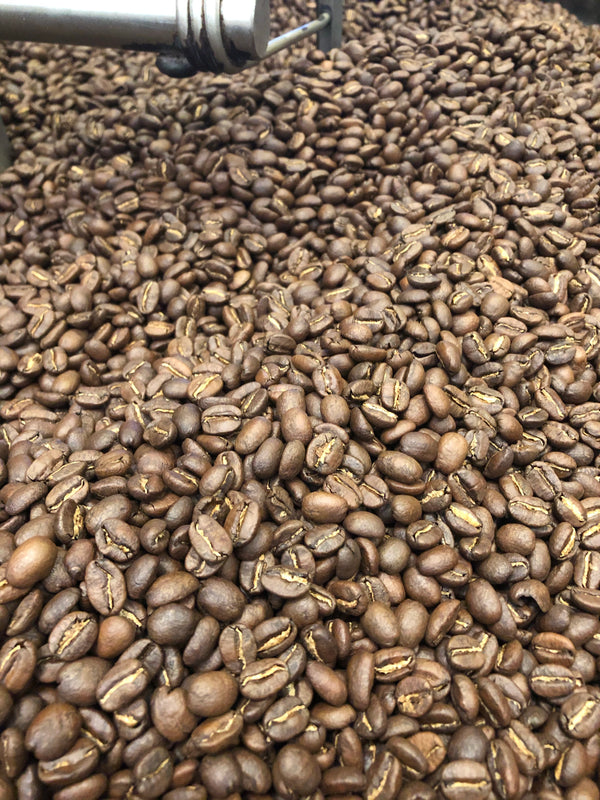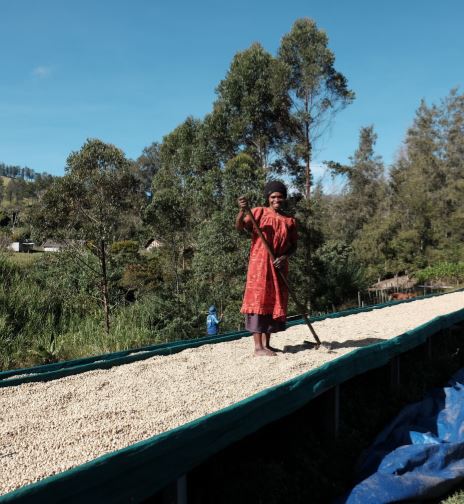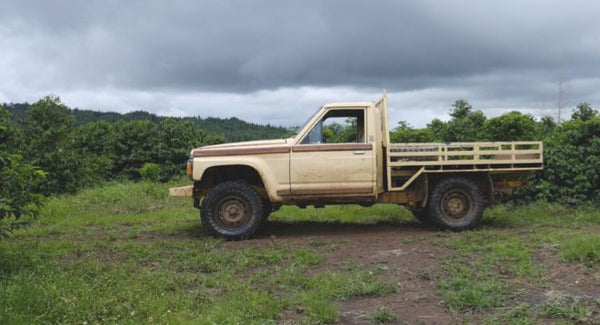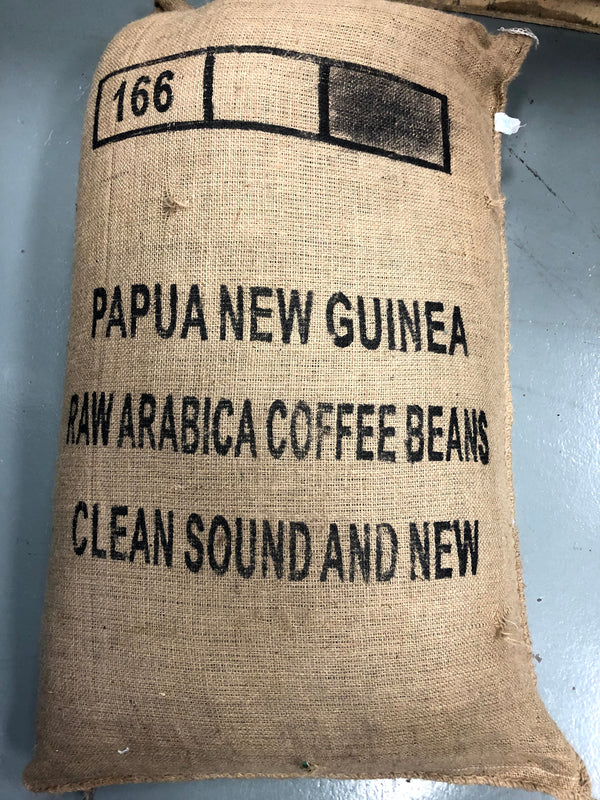Papua New Guinea Baroida | Limited Reserve | Medium City Roast
Regular price $17.00
Unit price per
Added Apr 19, 2020
Balanced cup with an amazing flavor profile. Rich milk chocolate wrapped in a hint of citrus with a clean bright finish. Is summer almost here...
Farm: Baroida Estate
Varietals: Arusha, Bourbon, Typica, Mondo Novo
Processing: Fully Washed
Altitude: 1,700 - 1,850 Meters Above Sea Level
Owner: Colbran Family
Subregion: Baroida, Aiyura Country
Region: Kianantu District, Eastern Highlands
Country: Papua New Guinea
Farm Size: 220 Hectares
PIONEERING IN THE EASTERN HIGHLANDS AT THE BAROIDA ESTATE
The Baroida Estate, run by Ben Colbran, has pioneered growing coffee in the Eastern Highlands, especially in Aiyura, Kianantu District. The estate, which weathered political turmoil throughout the second half of the 20th century, has become known for superb quality control. The name Baroida comes from the name for a spirit that resides in a large boulding sitting in one of the rivers that runs through the estate. According to the locals, Colbran’s ability to withstand difficult times and continue producing great coffees can be attributed to the boulder, which has been there longer than they can remember.
BAROIDA ESTATE
The plantation is 220 hectares. Meticulous separation for quality control helps maintain the high quality of the estate. After careful sorting, cherry is pulped on disk pulpers. Then, it dry-ferments in vats for 36 hours. Water is pumped into the vats in a circular motion to naturally agitate the coffee and remove any remaining mucilage.

COFFEE IN PAPUA NEW GUINEA
Papua New Guinea is different from many of our other origins because it’s coffee culture and larger-scale production is fairly new. For this reason, a great deal of education and outreach is still needed to help farmers achieve the best quality beans possible. However, times are changing as Papua New Guinea becomes more and more of a desired origin in specialty coffee. Between 2015 and 2016, farmers saw a 65% increase in production Many smallholder coffee farmers in Papua New Guinea pulp and process their own cherries. They pulp cherry and then ferment for approximately 36 hours. After washing, they dry the beans to appropriate moisture content before preparing the parchment for sale. Other farmers sell their coffee as cherry, which allows mills and exporters more control over the quality of the final coffee. Coffee purchased from the farmer as cherry is often called “estate” coffee, even though it’s not from an estate. Logistics remain a big issue in Papua New Guinea. Mountainous regions, poor roadways and lack of infrastructure make transporting and exporting coffee difficult. Poor roadways also affect coffee producers’ ability to meet deadlines for production and deliver their coffees to port. When remote villages only have one road to and from a larger city, rain can easily make roads impassable for days or even weeks, making transporting coffee to market impossible. There is a preponderance of different tribal groups and local languages. Years of mistrust and conflict between different groups has made it difficult to organize farmers in collectives or cooperatives
